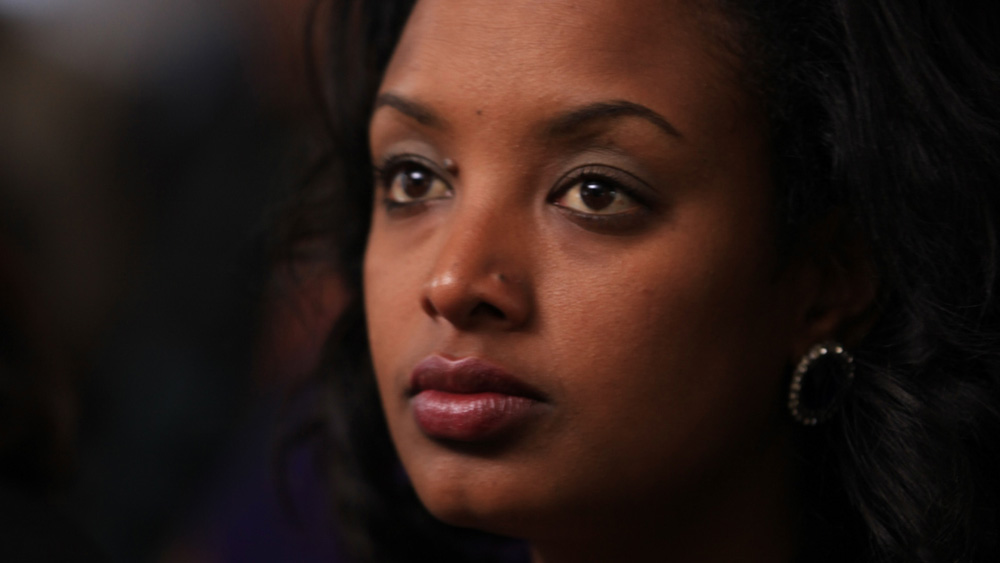Although altruism is unquestionably the driving force behind Angelina Jolie’s decision to lend her name as a presenter to “Difret,” an enthralling Ethiopian-set drama pulled from the headlines that highlights the plight of young women in the country, it wouldn’t be surprising to discover that Jolie’s association was partially out of a desire to encourage more female roles such as the kind she typically plays herself – strong, smart and unafraid to kick some ass.
That last part might not seem to apply to Meaza Ashenafi (Meron Getnet) at first, introduced sitting behind a desk at the humble office of the Andinet Women Lawyers Association, listening to the troubles of a woman whose husband physically abuses her, but when the new client opines there’s little she can do, Meaza leaves no doubt that she’ll handle the situation when she responds firmly, “No one is above the law.” Yet Meaza’s resolve is put to the test soon after when she learns of Hirut (Tizita Hagere), a 14-year-old villager who was kidnapped by a man who was refused her hand in marriage and after being raped, finds her only opportunity for escape with a rifle he accidentally leaves behind. Instead of being seen as a victim acting in self-defense, Hirut’s considered a cold-blooded killer in the patriarchal society, setting off criminal proceedings where the local laws are stacked against her.

Although the film doesn’t dig into its characters’ backstories much beyond Meaza, so as not to take away from the film’s energetic pace, it treats all of them with respect, no matter how perverse their views may seem. Mehari makes clear that the men lined up to see Hirut dead are doing so out of terribly misguided tradition rather than unmotivated animosity, making their machinations all the more chilling. Likewise, the motives of Meaza’s fight to free Hirut, which ultimately results in suing the government for the right to claim self-defense, is questioned not only by the community at large but her peers as well who fear the case’s notoriety will erase the progress they’ve made on women’s rights issues gradually over time.
Occasionally, Mehari does something slightly out of character for the film, cranking up the score during the initial abduction of Hirut in an unusual show of dramatic overstatement or diffusing the tension of a car chase by exiting the scene with a fade to black not long after it begins. However, “Difret” is undeniably powerful, elegantly unpacking one of the ugliest stories imaginable. Whereas films such as Kim Longinotto’s 2005 documentary “Sisters-in-Law,” which looked at women dealing with similar circumstances in Cameroon’s legal system through the lens of two female judges, have exposed the horrifying gender inequality that’s still a part of daily life in Africa, the ability to follow a case from start to finish, displaying the systemic subjugation of women, particularly from rural regions, is the stuff of high drama and even higher value to the cause of human rights. “Difret” is the rare film to get the most out of both.
“Difret” does not yet have U.S. distribution.





Comments 1